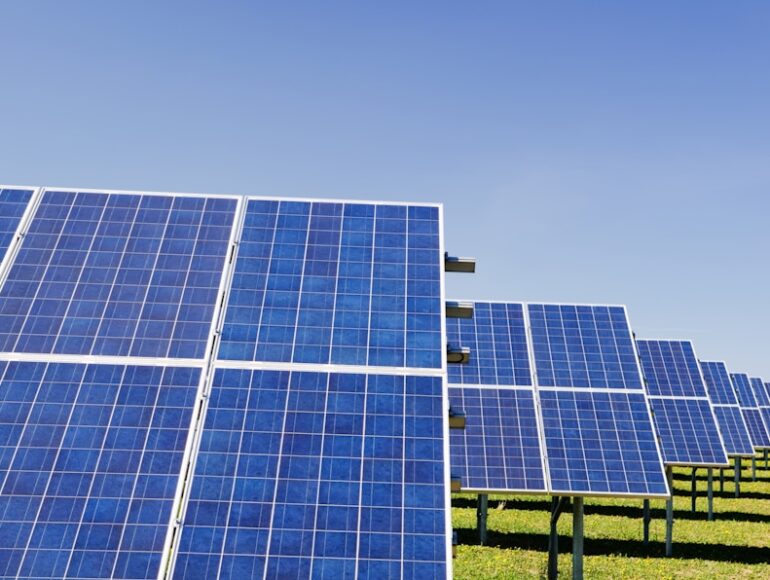Variable-rate energy plans are a type of energy plan where the rate you pay for electricity or gas can fluctuate from month to month based on market conditions. This means that your energy bill could go up or down depending on factors such as supply and demand, fuel costs, and other market forces. Unlike fixed-rate energy plans, where the rate you pay for energy remains constant for the duration of your contract, variable-rate plans offer more flexibility but also more risk. It’s important to understand the pros and cons of variable-rate energy plans before deciding if this type of plan is right for you.
Pros of Variable-Rate Energy Plans
One of the main advantages of variable-rate energy plans is the potential for cost savings. When energy prices are low, you can benefit from lower rates and save money on your monthly energy bills. Additionally, variable-rate plans offer flexibility, as they typically do not require a long-term contract, allowing you to switch to a different plan or provider without incurring early termination fees. This can be beneficial if you anticipate a change in your energy usage or if you want to take advantage of better rates with a different provider. Furthermore, some variable-rate plans may offer introductory or promotional rates, providing an opportunity to save even more on your energy costs in the short term.
On the other hand, variable-rate plans also offer the potential for increased costs if energy prices rise. This means that during periods of high demand or market volatility, your energy bills could increase significantly, leading to higher overall expenses. Additionally, variable-rate plans can be unpredictable, making it difficult to budget for your energy expenses. If you prefer stability and predictability in your monthly bills, a variable-rate plan may not be the best option for you. Finally, some variable-rate plans may come with certain terms and conditions that could result in additional fees or charges, so it’s important to carefully review the details of any plan before signing up.
Factors to Consider Before Choosing a Variable-Rate Energy Plan
Before choosing a variable-rate energy plan, there are several factors to consider. First, it’s important to assess your risk tolerance and financial situation. If you are comfortable with the potential for fluctuating energy costs and have the flexibility to absorb higher bills during periods of increased prices, a variable-rate plan may be suitable for you. However, if you prefer stability and predictability in your monthly expenses, a fixed-rate plan may be a better fit. Additionally, it’s important to consider your energy usage patterns and whether they are likely to change in the near future. If you anticipate a significant increase in energy usage, such as due to a new appliance or a change in living arrangements, a variable-rate plan may not be the best option as it could lead to higher costs.
Furthermore, it’s essential to research and compare different variable-rate plans from various providers to ensure that you are getting the best possible deal. Look for any additional fees or charges that may apply, as well as any terms and conditions that could impact your overall costs. Finally, consider the current market conditions and trends in energy prices to gauge the potential risks and rewards of a variable-rate plan.
Who Should Consider a Variable-Rate Energy Plan?
Variable-rate energy plans may be suitable for certain consumers depending on their individual circumstances. For example, if you are someone who closely monitors energy prices and is willing to take on some level of risk in exchange for potential cost savings, a variable-rate plan could be a good option. Similarly, if you have the flexibility to adjust your energy usage in response to market conditions or are comfortable with the potential for fluctuating bills, a variable-rate plan may be a suitable choice for you.
Additionally, if you are someone who values flexibility and does not want to be tied down by a long-term contract, a variable-rate plan could offer the freedom to switch providers or plans as needed without incurring penalties. This can be particularly beneficial if you anticipate changes in your living situation or energy usage patterns in the near future.
Who Should Avoid a Variable-Rate Energy Plan?
While variable-rate energy plans may offer benefits for some consumers, they may not be suitable for everyone. If you prefer stability and predictability in your monthly expenses or are on a fixed income, a variable-rate plan may not be the best option for you. Similarly, if you are someone who is risk-averse and does not want to take on the potential for increased costs during periods of market volatility, a fixed-rate plan may be a better fit.
Furthermore, if you do not have the flexibility to adjust your energy usage in response to fluctuating prices or are unable to absorb higher bills during periods of increased costs, a variable-rate plan may not be suitable for your needs. It’s important to carefully assess your individual circumstances and preferences before deciding on an energy plan to ensure that it aligns with your financial situation and lifestyle.
Making the Decision for Your Energy Plan
In conclusion, choosing an energy plan is an important decision that can have a significant impact on your monthly expenses and overall budget. Variable-rate energy plans offer flexibility and the potential for cost savings but also come with increased risk and unpredictability. Before deciding on a variable-rate plan, it’s essential to carefully consider your risk tolerance, financial situation, and energy usage patterns. Additionally, it’s important to research and compare different plans from various providers to ensure that you are getting the best possible deal.
Ultimately, the decision of whether to choose a variable-rate energy plan depends on your individual circumstances and preferences. If you are comfortable with the potential for fluctuating costs and value flexibility, a variable-rate plan may be suitable for you. However, if you prefer stability and predictability in your monthly expenses or are risk-averse, a fixed-rate plan may be a better fit. By carefully assessing your needs and conducting thorough research, you can make an informed decision that aligns with your financial situation and lifestyle.


